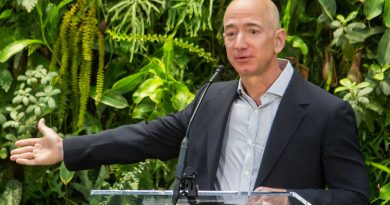African Nepotism Persists With Post-Colonial Aid
By Theodore Ezike
Layout Editor
In 1884, the fate of an entire continent thousands of miles away was determined in smoke-filled parlor room and Berlin mansions. From then on, European colonialism was forced upon the African continent, territories with an amalgamation of hundreds ethnic groups, cultures, and languages. Through a mix of divide and conquer, co-opting of the elite class, terror, and superior technology, Europeans kept control of their colonies for the next several decades. The 1960s saw the creation of a number of fledgling African States, many of which lacked the tools needed for a state to succeed. Thus the continent was thrown into chaos for years to come.
Many of these countries have only begun to see any semblance of political stability, and even then, many are still caught up in military engagements or duplicitous government actions of long-standing dictators. Almost half of all African presidents have held office for more than 5 years. On average, their time in office is 10.30 years, which is longest of any region in the world using a democratic system. Africa also has the oldest presidents with an average age of 65. Some presidents and ministers in these countries are the last vestiges of European colonial rule and with them hold the corruptive and exploitive influences of their former European oppressors.
The vast majority of African countries are struggling. They rank among the lowest in terms of GDP and HDI, according to the World Bank and UNDP respectively, despite their rich supply of raw materials. Because of its material wealth, the continent receives massive amounts of foreign aid. However, this aid is often squandered and sucked up by corrupt governments, such as the new government of South Sudan. According to the New York Times, many Sudanese government officials are unfairly benefitting from the humanitarian aid offered directly to the country due to the ongoing war.
The obvious solution is for more developed countries to stop assistance altogether. However, developed countries cannot simply halt foreign aid. Doing so would mean punishing the people in most need of assistance because of corruption and nepotism shown by their governments. Countries like Angola, named the deadliest place to be a child according to UNICEF, are in critical need of aid even though its government consistently ranks as one of the most corrupt in the world by the watchdog group, Transparency International. It is unfair to poor Africans that their leaders hide behind suffering populations to line their own pockets.
Effective foreign aid in Africa would be possible only if the countries fostered an environment conducive to proactive policies. African countries need to curb their over-reliance on foreign money. The governments of these countries also need to insure that their institutions are strong. Many African countries are either too fragile, too undemocratic, or both, for there to be any long-term stability. Africa also need to address the pillaging of its natural resources.
The continent exchanged its old colonial oppressors for new ones that exploit the continent just as fervently. Old leadership needs to be replaced. Instead of cronyism, there needs to be a sense of nationalism that comes from leaders wanting to do right by their citizens. Until then, foreign assistance will be a waste and the continent will never grow as it should.

